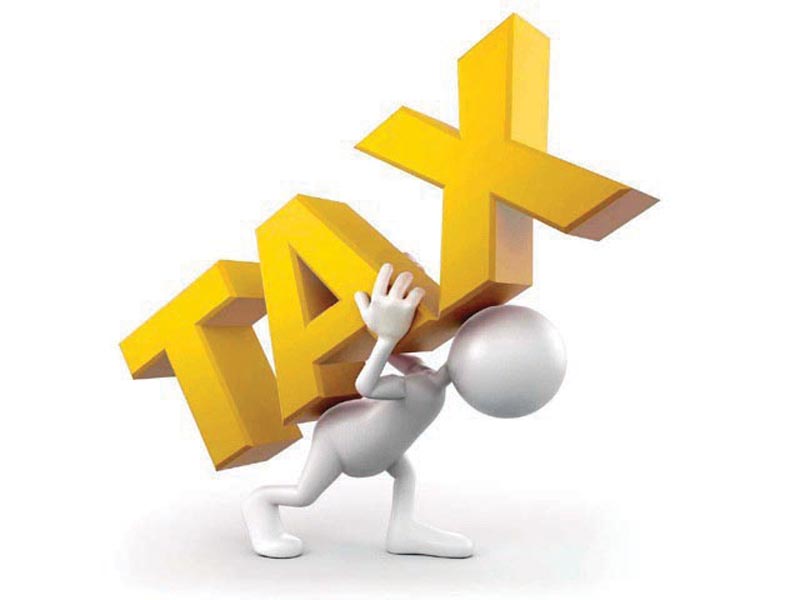
In addition, economic growth is also an indication of how well the government creates an enabling environment for entrepreneurs, encourages innovation and risk taking, expands skills and capacity building, reduces bureaucratic red tape and makes Pakistan an attractive destination for both local as well as foreign investors.
It is shocking to hear that our taxation policy, as it is currently stands, discourages investment in business and encourages rent seeking and earning interest from deposits. This anomaly may be the critical factor between long-term sustainability of our country’s economic growth engine.
If a risk-taking youth plans an entrepreneurial venture, invests capital and uses time and energy to pursue an endeavour, ends up making a profit, the government will tax it at 33% – the highest tax bracket there is. On the other hand, a risk-averse youth, who decides to place his capital in interest-bearing certificates/deposits, will be taxed at only 10%. This discourages risk-taking and entrepreneurial ventures.
However, the government has offered a five-year tax holiday for business starters with 100% equity for relief purposes. But the tax structure continues to adversely affect long-term sustainability.
Moving further, if the business venture pays out their excess profits as dividends, the dividend get taxed at 10% despite the fact that the income on which the dividends are paid has already been taxed at the full 33%.
This discrimination does not end here. If the business decides to keep a portion of its profit with plans to invest it in the future for expansion purposes, the interest on such business deposit income again gets taxed at the highest tax rate of 33%. However, if the business forgoes its plan to invest and pays out the surplus to its shareholders, who decide to park their surplus funds in deposits, the interest on such deposits will get taxed at only 10%.
No matter how you look at it, the existing taxation structure discourages investment and risk taking but encourages earning interest and rent seeking. The government’s taxation programme is not a good omen for a country that desperately needs investment and new business start-ups to support economic growth and broad-based employment.
Over the long term, the investor is much better off borrowing money from a bank to start his business rather than putting his own capital as the return on equity is much higher with the borrowing/equity mix. Due to the tax arbitrage, the financier can also lend money to his venture by investing in corporate bonds issued by his own company. The government effectively subsidises if anyone borrows money to start a business.
When a tax system encourages investors to borrow, people with savings are more likely to use excess funds for rent-seeking and interest-earning avenues. In many cases, borrowing also leads to fund budgetary deficit, which is wasteful spending. Currently in bank borrowing, the scale is tipped in favour of big companies, while small and medium enterprises and entrepreneurs do not get borrowing from the formal sector. Thus, they cannot claim interest expense in case they borrow from loan sharks.
Our tax laws were not this skewed when we started as an independent country 65 years ago. We inherited tax laws of the British India, which distinguished between ‘Earned Income’ such as salary and business income, and ‘Unearned Income’, such as rent or interest income. Law at that time taxed unearned income at a higher rate but somewhere down the road, in Pakistan, our tax systems have started to favour rent-seeking and interest-earning methods.
Another anomaly that no government has been able to fix is that agricultural income is exempt from paying taxes; here again the history goes back to the archaic system, where the feudal landlords, on behalf of the rulers, made the tax collection. The ruler rewarded the landlords by exempting them from paying taxes. This system does not exist today but exemption continues.
Unless these anomalies are fixed, investments, job creations and economic growth will remain elusive.
THE WRITER IS ASSOCIATED WITH THE CORPORATE SECTOR AND A SUPPORTER OF MANY SOCIAL ENTERPRISES AND FOUNDATIONS
Published in The Express Tribune, August 4th, 2014.
Like Business on Facebook, follow @TribuneBiz on Twitter to stay informed and join in the conversation.


1732132039-0/Fortnite-(2)1732132039-0-165x106.webp)
1732130824-0/Simon-(2)1732130824-0-165x106.webp)













COMMENTS
Comments are moderated and generally will be posted if they are on-topic and not abusive.
For more information, please see our Comments FAQ